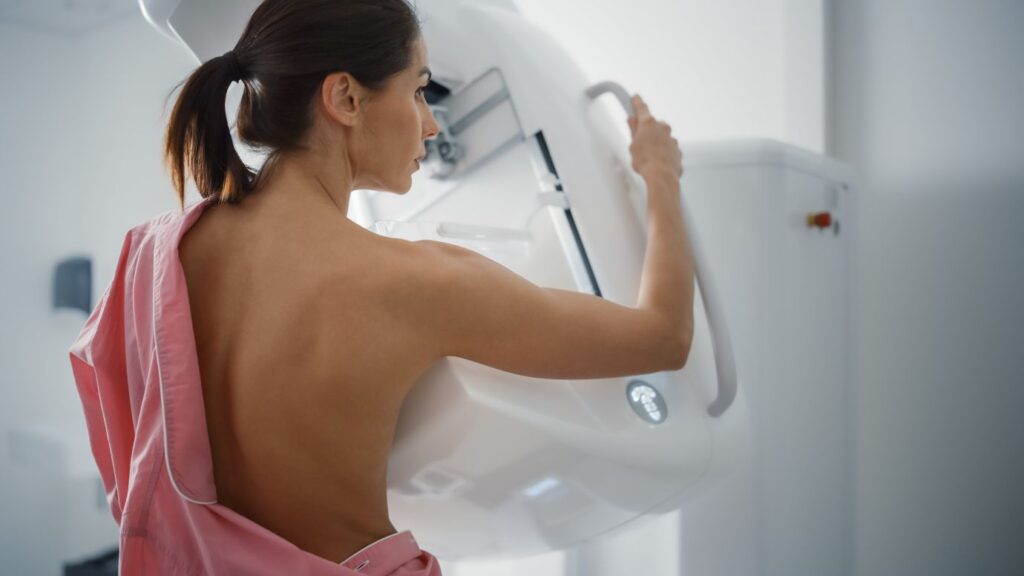October is Breast Cancer Awareness Month, a time when the world turns pink to honour the lives affected by breast cancer and to champion early detection, diagnosis, and treatment. For many, it’s a month of solidarity and education. For me, it’s deeply personal.
My grandmother and aunt—mother and daughter—both passed away from breast cancer. They were strong, loving women whose lives were cut short by a disease that, at the time, offered little in the way of early detection or effective treatment, at least not where we are today. Their stories are not unique, but they are mine. And they fuel my commitment to raising awareness and advocating for progress.
We have come a long way since their diagnoses. In Australia today, the five-year survival rate for women diagnosed with breast cancer is 92.3 per cent, and 87 per cent for men. These numbers reflect decades of research, improved screening programs, and more personalised treatment options. But behind every statistic is a person. A life interrupted, a family changed forever.
Breast cancer remains the most commonly diagnosed cancer in Australian women, accounting for 28 per cent of all female cancers. In 2025, it’s estimated that 21,194 Australians will be diagnosed with breast cancer—58 people every single day. While the average age of diagnosis is 61, there’s a concerning rise in early-onset cases. Around 1,000 women under 40 are diagnosed each year, and three women under 40 are diagnosed every day. These numbers are staggering, but they also highlight the importance of awareness and early detection. Thanks to initiatives like BreastScreen Australia, which offers free mammograms to women aged 50–74, more cancers are being caught early and when treatment is most effective.
Globally, breast cancer is the most common cancer among women, with 2.3 million new cases and 670,000 deaths reported in 2022. If current trends continue, by 2050, we could see 3.2 million new cases and 1.1 million deaths annually. The burden is not evenly distributed as women in low- and middle-income countries face significantly higher mortality rates due to limited access to screening and treatment. The World Health Organization’s Global Breast Cancer Initiative aims to reduce mortality by 2.5 per cent annually, potentially saving 2.5 million lives by 2040. But this requires global cooperation, investment in healthcare infrastructure, and a commitment to equity in care.
Breast Cancer Awareness Month is more than pink ribbons and fundraising walks. It’s a powerful reminder to prioritise our health, to advocate for ourselves and others, and to support those navigating the complexities of a diagnosis. It’s a time to honour survivors, remember those we have lost, and push for continued progress. This year’s theme, “Every Story is Unique, Every Journey Matters,” resonates deeply. Behind every diagnosis is a story of courage, resilience, and hope. My grandmother and aunt didn’t have access to the tools we have today. But their legacy lives on in the strides we’ve made and, in the work, still to be done.
Whether you’ve been personally affected by breast cancer or not, there are meaningful ways to engage this October. Schedule your screening—if you’re over 40, talk to your GP about mammograms. Early detection saves lives. Know your risk because family history matters, and genetic testing can guide personalised screening plans. Support research and donate to organisation’s funding clinical trials and treatment innovations. Share your story if you are a survivor or caregiver, as your voice can inspire and educate others. And wear pink with purpose—use the visibility of the month to spark conversations and spread awareness.
We have made incredible progress from targeted therapies to AI-assisted diagnostics. But disparities persist. Women of colour are more likely to experience aggressive forms of breast cancer and have higher mortality rates, due to a complex interplay of biological factors, limited access to care, systemic racism, and gaps in early intervention. Addressing these inequities must be part of our collective mission. As we mark Breast Cancer Awareness Month, I think of my grandmother and aunt—not just with sorrow, but with gratitude. Their lives, though shortened, have inspired a commitment to change. They remind me that awareness is not passive it’s active, urgent, and deeply human.
Let this October be more than a symbol but a time to reflect, to act, and to advocate. We honour those we have lost not only with remembrance but with resolve. Every screening booked, every story shared, every dollar donated moves us closer to a future where breast cancer is no longer a life sentence.
My grandmother and aunt didn’t live to see the progress we’ve made, but their memory fuels my hope for what’s still possible and every life is worth fighting for.


